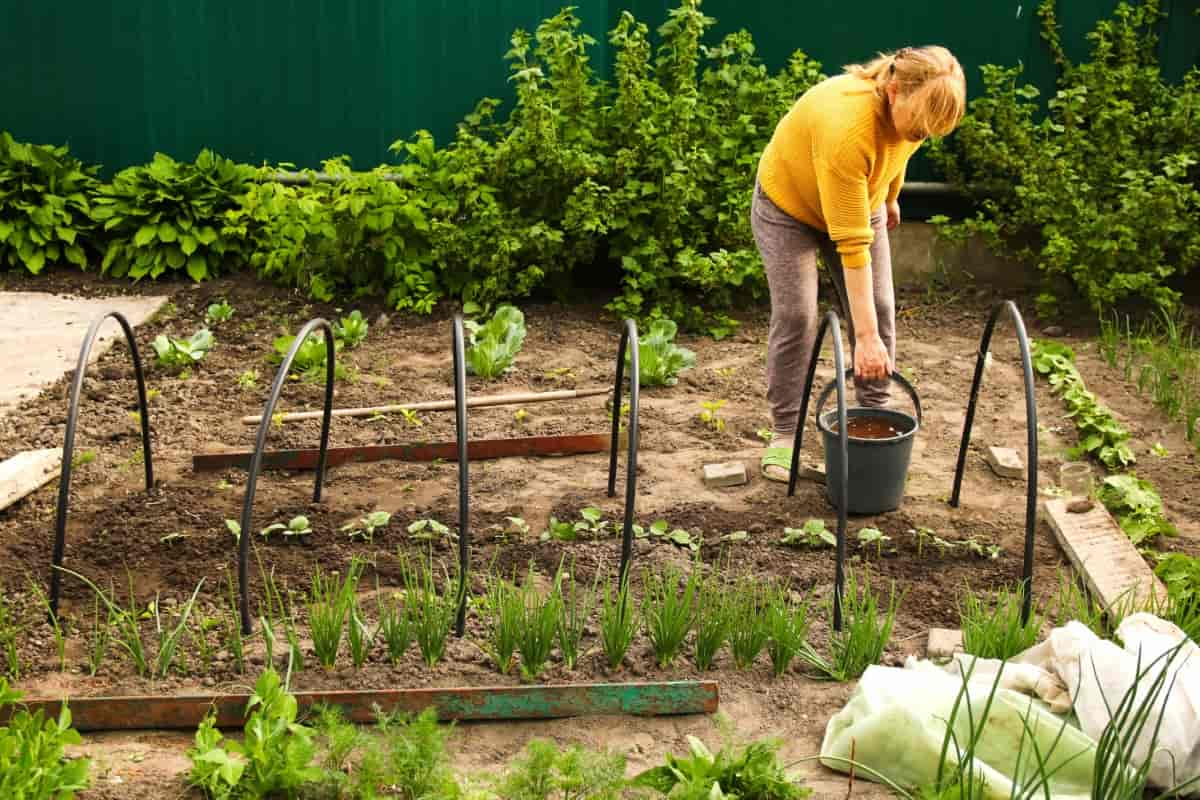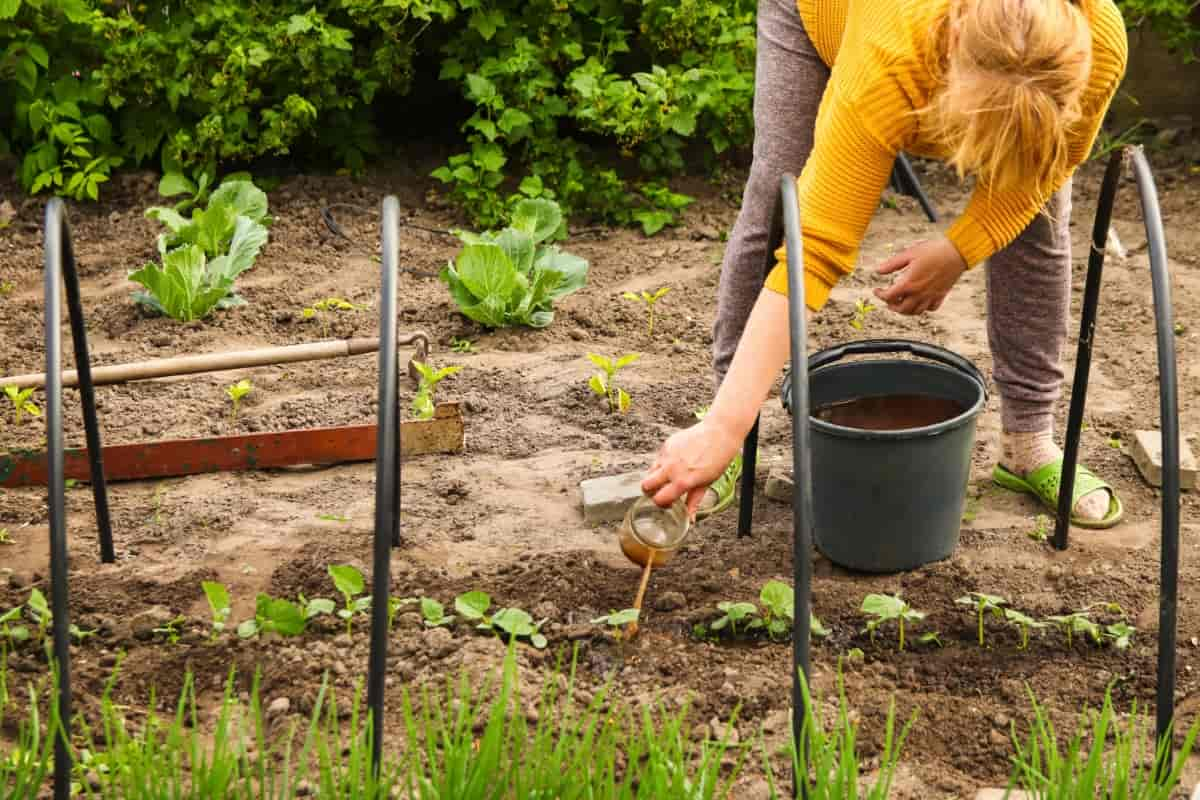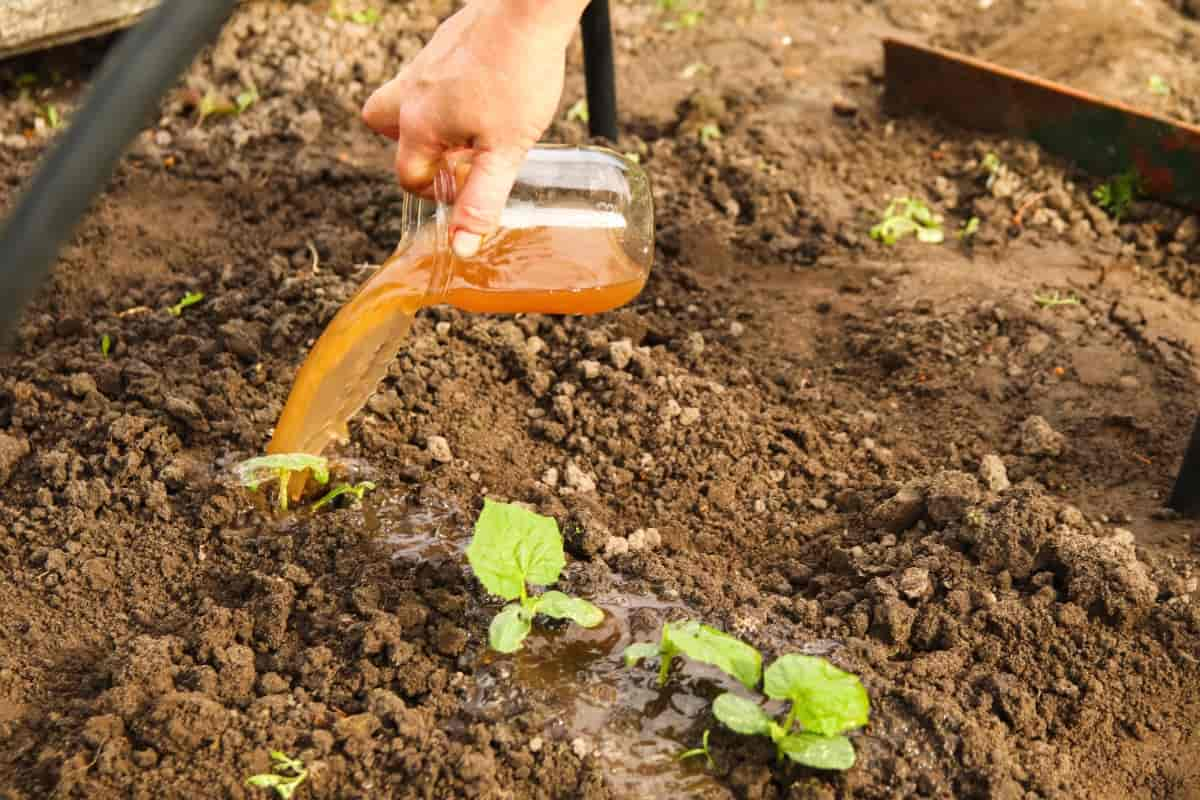For any passionate gardener looking for a natural way to enhance their soil and improve plant health, the answer might lie beneath the sea. Among the myriad organic fertilizers available today, one stands out as a veritable treasure trove of nutrients – a kelp meal. Made from dried and ground seaweed, particularly from the kelp family, this organic additive is a powerhouse of macro and micronutrients, making it an effective fertilizer and soil enhancer.

Kelp meal nutrient analysis shows an impressive array of elements essential for plant growth, including nitrogen, phosphorus, potassium, and trace minerals. This article will explore the benefits of kelp meals for plants and guide you on making and using this remarkable product in your organic gardening practices.
Benefits of Kelp Meal for Plants
What is Kelp Meal?
Kelp Meal is essentially the dried and ground form of seaweed from the kelp family. It is brownish in color with a granulated texture, making it easy to mix into the soil. Gardeners and farmers have appreciated kelp meal for centuries because of its exceptional nutrient profile. It contains macro-nutrients like nitrogen, phosphorous, and potassium and offers a rich supply of trace minerals, growth hormones, and vitamins, providing plants with a balanced diet.
Benefits of Kelp Meal for Plants
One of the key advantages of kelp meal is its ability to promote healthy and robust growth in plants. It achieves this through its impressive array of nutrients and plant growth hormones that encourage cell division and elongation, leading to faster and healthier growth.
Kelp meal benefits also include enhanced root development, improved resistance to pests and diseases, better tolerance to drought and frost, and improved yields and quality of fruits and vegetables. When you ponder how much kelp meal to add to the soil, the answer is straightforward: a little goes a long way, making it a cost-effective option for organic gardening.
Organic Gardening with Kelp Meal
Embracing organic gardening practices is not just a trend; it’s a commitment to creating a healthier environment for ourselves and future generations. Kelp meal is ideal for organic gardening as it is completely natural, sustainable, and free from synthetic chemicals. Furthermore, it plays a crucial role in improving soil structure by enhancing its water-holding capacity, promoting beneficial microbial activity, and improving aeration, leading to healthier plants and a more productive garden.
The question of how to use kelp meal fertilizer in organic gardening is often asked, and the answer lies in its versatile nature. Whether you mix it directly into your garden soil or compost pile or use it as a foliar spray or seed starter, kelp meal is an organic gardener’s best friend.
Kelp Meal as a Soil Amendment
As a soil amendment, kelp meal enhances the soil’s overall structure and fertility. When added to the soil, it can help increase the soil’s water retention capability, which minimizes water wastage and ensures the plants have access to water for longer periods. How much kelp meal to add to the soil depends on its current state. Generally, you might want to add a bit more for poor soils, while for rich soils, a smaller amount will suffice. But remember, a little goes a long way with a kelp meal.
Kelp Meal for Seed Starting
For those wondering how to use kelp meal fertilizer for seed starting, it’s simple. Mix a small kelp meal into the seed-starting mix to give your seeds a nutrient-rich environment to start their journey. The growth hormones in kelp meal stimulate germination and root development, giving your seedlings a strong start.
Kelp Meal for Foliar Feeding
Kelp meal can also be made into a liquid solution for foliar feeding, giving plants a quick nutrient boost. To understand how to use liquid kelp fertilizer, know that the process involves dissolving kelp meal in water and spraying the solution directly onto plant leaves. The foliage absorbs the nutrients, providing a direct nutrient boost to your plants. During times of stress, such as drought or high temperatures, providing an instant nutrient boost can be highly advantageous for plants.
Kelp Meal for Composting
Adding kelp meal to your compost pile can greatly enhance its nutrient content. The high mineral content of kelp meal helps speed up the composting process by stimulating the microbial activity within the compost pile. It also adds valuable nutrients to the compost, making it even more beneficial for your garden. If you’re curious about how to make kelp fertilizer for composting, it’s as simple as adding a layer of kelp meal to your compost pile and letting nature do its work.
In case you missed it: Homemade DIY Alfalfa Meal Soil Fertilizer: Recipe for Natural and Organic Benefits of Plants

Directions for Using Kelp Meal
Using kelp meals in your garden is straightforward. To use it as a soil amendment, simply sprinkle it onto your garden soil and lightly mix it in, or add it to your compost pile. Dissolve it in water as per the recommended dosage as a liquid fertilizer, and spray it directly onto your plants’ leaves. For kelp meal in soil, use 1-2 pounds per 100 sq. ft. However, these are broad guidelines, and you should adjust the amount based on your garden’s specific needs.
Frequency of Kelp Meal Application
While the frequency of kelp meal application depends on your soil’s current condition and your plants’ specific needs, it is generally recommended to apply kelp meal once or twice a year. Kelp meal slowly releases nutrients over time, offering a continuous plant nourishment.
Compatibility of Kelp Meal with Other Fertilizers
One of the best things about kelp meal is its compatibility with other organic fertilizers. It can be used with other soil amendments to create a well-rounded and nutrient-rich environment for your plants. Moreover, it complements other organic fertilizers by enhancing their effectiveness, making it an excellent addition to any organic gardening regimen.
Enhancing the Nutrient Profile of Potting Mixes with Kelp Meal
For those passionate about container gardening, adding a kelp meal to your potting mix can make a difference. Container-grown plants often face nutritional challenges as they are restricted to the nutrients available in the pot. This is where kelp meal steps in, enhancing the nutrient profile of the potting mix and providing a balanced diet of macro and micro nutrients necessary for optimal growth.
In case you missed it: Blood Meal Powder Benefits for Plants: How and When to Apply in Your Home Garden

To do this, mix a proportion of kelp meal into your potting mix before planting. The kelp meal will slowly release nutrients, sustaining plants’ growth and vitality. With kelp meal, you can rest assured that your potted plants receive a healthy dose of nature’s best.
Conclusion
Kelp meal is a versatile and nutrient-packed addition to any organic garden. Its ability to nourish the soil, stimulate plant growth, and boost plant health makes it an essential tool in the gardener’s arsenal. Whether you’re a seasoned organic gardener or just beginning your green thumb journey, kelp meal offers a simple, effective, and natural way to maximize your garden’s potential. So, go ahead, give the kelp meal a try, and watch your garden thrive.
- Feed Your Flock for Less: Top 10 Tips to Save on Chicken Feed
- Ultimate Guide to Ossabaw Island Hog: Breeding, Raising, Diet, and Care
- Hatching Answers: The Top 10 Reasons Your Chickens Aren’t Laying Eggs
- Eggs and Economics: Breaking Down the Cost of Raising Backyard Chickens
- Defend Your Greens: Proven Methods to Keep Iguanas Out of Your Garden
- Ultimate Guide to Cinnamon Queen Chicken: A Comprehensive Guide for Beginners
- Ultimate Guide to California Tan Chicken: Breeding, Raising, Diet, Egg-Production and Care
- Ultimate Guide to Marsh Daisy Chicken: Breeding, Raising, Diet, and Care
- 10 Types of Chicken Farming Businesses You Can Start for Profits